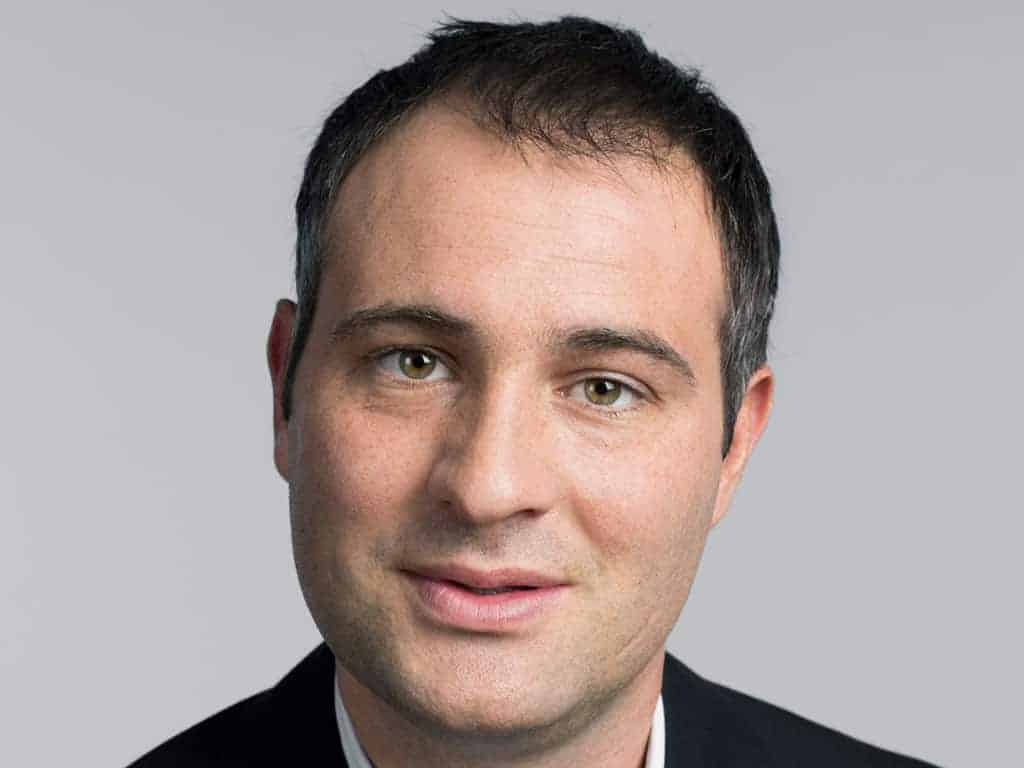Sustainable Investment Pioneer: Ben Goldsmith

On the blog this week we are celebrating Pioneers of Responsible and Sustainable Investment and today we hear from Ben Goldsmith.
This week is Good Money Week, 30th October to 5th November 2016, a nationwide campaign, to grow awareness of sustainable, responsible and ethical finance.
Ben Goldsmith is recognised as a leader in green finance, a Co-Founder of investment group WHEB, and more recently has co-founded Menhaden Capital, a new London-listed investment trust with a focus on energy and resources. Last month he launched a new green investment fund with Menhaden Capital to support businesses with increasing their energy and water efficiency and reducing waste.
Greenhouse caught up with Ben to get his insight into the future of our low carbon economy.
What drives you in terms of the transition to a low carbon economy?
I grew up largely outdoors, and became a nature lover from a very young age. And if you love the natural world it is hard not to become an environmentalist, to want to help find ways of stemming the tide of destruction, of protecting and restoring the environment. I am particularly excited by the green industrial revolution, which represents a dramatic shift in the way in which we use energy and other resources, in terms of efficiency and responsibility. Furthermore, the commercial imperative for solving environmental problems has become apparent; the green industrial revolution is driven by a convergence of commerce and the environment, they are no longer mutually exclusive.
What are the key characteristics that you think inspire change in investors/consumers?
There are two big trends emerging among investors that are driving the transition to a greener economy at a rapid rate. Firstly, there is a growing realisation amongst investors about the financial implications of limited resources and the increasing returns from new technologies. The cost curve of solar panels has brought about a 90% reduction in the last 6 years. Smart meters, smart grids, water efficiency and desalination technologies are all evolving dramatically, turning traditional business models on their head, particularly in the energy market. Private capital is flowing into this area and new, smart technology is delivering significant returns for investors.
The second trend is that investment portfolios are suffering from their exposure to climate risk. Mainstream private equity firms are beginning to catch up and realise that companies that damage the environment are also performing badly in financial terms. There is evidence of firms moving their funds to reducing negative impact of portfolio as it no longer makes financial sense. The term ‘stranded assets’, which was coined by the Carbon Tracker Initiative, has entered the political and financial mainstream.
What excites you about the future and our progress towards a low carbon economy?
The political debate around climate change and how there is now a big difference in how it is perceived, it is seen less as a cost and more as an investment in a better future, which improves the quality of living for everyone and is better for the environment. For example, clean electrified transport models will be more pleasant and effective, farms can be improved to produce better, healthier food. The answers to climate change lies in the things that we are doing anyway to invest in our future; energy independence, livable cities, clean air, sustainable resources.
“What if climate change is a hoax and we end up building a better world nothing?” Joel Pett, Cartoonist.
Who are your green business heroes?
- Jochen Zeitz introduced the first ever environmental profit and loss report at PUMA
- Sir Ian Cheshire, Kingfisher PLC, delivered a transformation supply chain
- Stuart Rose, the former CEO of M&S who, with his ‘Plan A’ delivered the first comprehensive sustainability strategy of of FTSE 100.
- Elon Musk of Tesla – perhaps the Thomas Edison of our age
How is what you are doing inspiring change in others?
If my green-themed investment vehicle manages to deliver great financial returns we can expect that more and more mainstream investors will follow our lead into these areas.
Which campaign/innovation are you most proud of/excited by this year?
I chair the Conservative Environment Network (CEN). Given the vote to leave the European Union, there is an opportunity for the UK not only to maintain the EU’s framework of environmental protection legislation, but to improve upon it. In particular, if we are to withdraw from the EU’s Common Agricultural Policy (CAP), we have the opportunity to put in place our own system of farming support which specifically rewards farmers for delivering public benefit – protection of soil, and watercourses, and birds, and hedgerows, and so on. Right now, under CAP, cash is handed over the farmers in return for little or none of these benefits. So the CEN has a busy time ahead – and I’m excited about that.
What are you reading at the moment?
Feral, by George Monbiot.
To read more of our Greenhouse Pioneer interviews click here. To join in the conversation for Good Money Week follow #GMW2016 and @goodmoneyweek.



